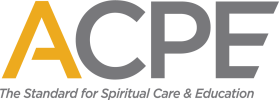Evaluation is a part of process education and may take various forms, be conducted with a variety of persons, occur at many and varied times, and serve several purposes.
- All Level I/Level II programs must have a process for student evaluation in each unit that includes the standardized ACPE Certified Educator’s evaluation form. The narrative section of this form should include the educator’s professional judgment about student’s work, abilities, strengths, weaknesses in relation to the ACPE Outcomes and Indicators. In addition to addressing the outcomes/competencies, end of unit evaluations should focus on the student’s individualized learning plan and learning goals and learning issues that have emerged in the CPE experience.
- All CEC programs must provide a written, formal evaluation based on the Competencies for Certified Educator CPE a minimum of every 6 months. In addition to assessing the CEC’s achievement of the competencies, the evaluation should include the educator’s professional judgment about the student’s work, abilities, strengths, and weakness in relation to the competencies.
- The end of unit evaluation must:
*be timely in respect to the evaluation experiences being summarized and also to the availability of the document for future use; the signed and final educator’s evaluation must be sent to the student through the online portal within 21 calendar days of the end of the unit.
*respect the confidentiality of the student, peers, and persons to whom the student provided spiritual care.
*never be given to anyone without the written permission and direction of the student, except as noted in the Guide for Student Records.
- Students (Level I/Level II and Certified Educator programs) must write a final self-evaluation at the conclusion of the unit.
- Students (Level I/Level II and Certified Educator programs) may attach a written response to the educator’s evaluation. If submitted, the student’s response becomes a part of the student’s official record.


